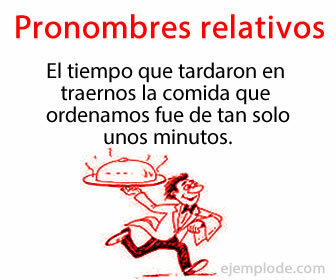Example of Conditionals in English
English / / July 04, 2021
When we talk about facts or situations that, for them to happen, that is, to consider them to be true, depend on the existence or realization of another situation or fact, we use a conditional. In English there are 4 types of conditional sentences that are classified with numbers from zero to three. Now you will know the four types of conditionals in English.
Zero conditional. The zero conditional is the most common and is used to talk about certain events, that is, situations that will always happen. Its structure is as follows:
[condition] If (if conditional) + subject + verb in present simple + (,) + [consequence] subject + verb in present simple.
Always keep in mind to follow the rules of the present simple in the third person singular. The use of the comma is also important, since in addition to the pause, it also indicates the separation between the condition and the consequence we are talking about. However, we will not use the comma if we mention the consequence first and then the conditional:
If I study, I approve the test.
If Susan travels, She learns about other cultures.
You broke a bone if you jump from the porsche.
Conditional I. The conditional I is used when we speak of certain or probable events that will occur in the future. Its structure is similar to that of the conditional 0, with the difference that the consequence uses the simple future tense. You can use affirmative or negative sentences. This estructure is the next one:
[condition] If + subject + simple present + (,) + [consequence] + subject + simple future.
Likewise, in cases where the consequence is mentioned before the condition, the comma is omitted between the sentences:
If you eat well, you will growth healthy.
If Mary enforces, she will graduate next year.
If Bob doesn’t work hard, I won’t buy a new car.
Conditional II. The conditional II serves to refer to events that could happen, but are not necessarily going to happen.
[condition] If + subject + simple past + (,) + [consequence] subject + would + simple verb.
When we talk about things whose possibility is unreal, we use the verb to be; using in all people the form were, which is the indication that it is an unreal hypothesis. This estructure is the next one:
[condition] If + subject + were + (,) + [consequence] subject + auxiliary verb (would, should, could) + simple verb.
If I had money, I would travel all around the world.
If I were a richman, I could travel all around the world.
I would go to the movies if we got money.
Conditional III. Also called the past conditional or impossible conditional, it talks about something that has happened in the past (condition) it would have had a certain result (consequence), but in reality it is not it gave. This estructure is the next one:
[conditional] If + subject + past perfect + (,) + [consequence] subject + would have + participle
If Robert had studied during the course, He would have approve the test.
If you had bring the chips, we would have a good dinner.
They would have a nice party if Sandy had bought the drinks.
12 examples of sentences with conditionals in English:
If I don't sleep in the afternoon, I finish earlier. (conditional 0)
I’ll be on time if I leave home now (conditional 1)
If I were engineer, I could repair the machines (conditional 2)
Robert would have bought the home he wish if he worked hard (conditional 3)
If you stay in home, I will be there in five minutes (conditional 1)
If my cousin told me the truth, we would have tripped to the city (conditional 3)
If your aunt composed the toaster, ella they could toast the bread (conditional 2)
If Rose sleeps well, she wake up early (conditional 0)
Come soon if you can (conditional 0)
Ann could have celebrated a nice birthday if Robbie had not broken her gift (conditional 3)
Mary would take the train if you give her money (conditional 2)
If you see much TV, you won't have enough time to play football (conditional 1)


